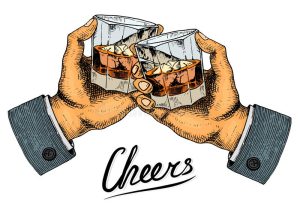Beers has been a part of human culture for thousands of years, and it has played an important role in many societies throughout history. In ancient times, beer was often safer to drink than water, since the brewing process killed off harmful bacteria. This made it a staple beverage in many cultures, and it was often used in religious ceremonies and social gatherings.
Today, Ales is enjoyed by millions of people around the world, and it continues to evolve and change with the times. The purpose of this article is to explore the history and lore of beers, from its origins in ancient Mesopotamia to the rise of craft brewing in the modern era. We will also examine the myths and legends that have grown up around beers, as well as the latest trends and innovations in the world of brewing. Whether you’re a casual beers drinker or a serious fan.
The Origins of Beer
Beer has been a staple of human civilization for thousands of years. It has been enjoyed by people from all walks of life and has played a significant role in many cultures throughout history. The origins of beers can be traced back to ancient times when it was first discovered and brewed by early human civilizations. In this article, we will explore the history of beers, its origins, and how it has evolved over time.
The First Beers
Beer is believed to have been first brewed in ancient Mesopotamia, which is now present-day Iraq. The discovery of beers is said to have been accidental, as early humans discovered that grains left in water for an extended period would ferment and produce an alcoholic beverage. This discovery is thought to have occurred around 10,000 BCE.
- Ancient Mesopotamia
The ancient Mesopotamians were the first to brew beers on a large scale. They used barley, which was abundant in the region, and brewed the beers in large clay pots. The beers was a thick, porridge-like substance that was consumed through a straw. It was often flavored with honey, dates, and other fruits.
Beer played a significant role in the religion of ancient Mesopotamia. It was considered a gift from the gods and was used in religious ceremonies. The Mesopotamians believed that beers had the power to bring people closer to the gods and that it could be used to communicate with them.
- Ancient Egypt
Ales also played an important role in ancient Egypt. It was consumed by people of all social classes, from the pharaohs to the common people. Beer was made from barley, which was grown along the Nile River. The Egyptians brewed beer in large quantities and used it as a daily staple.
Ales was also used in religious ceremonies in ancient Egypt. The god Osiris, who was associated with fertility and agriculture, was often depicted holding a beer in his hand. The Egyptians believed that beer had the power to heal and that it could be used to treat a variety of ailments.
The Evolution of Beer
Beer has come a long way since its accidental discovery in ancient Mesopotamia. Over the centuries, it has evolved and changed in many ways, reflecting the cultural and technological changes of the times. In this article, we will explore the history of beer, focusing on its evolution during three key periods: ancient Greece and Rome, the Middle Ages, and the Industrial Revolution.
Ancient Greece and Rome
Beer was known in ancient Greece and Rome, but it was not as popular as wine. The Greeks and Romans considered beers a luxury item, and it was often reserved for special occasions or consumed by the lower classes. Wine, on the other hand, was the drink of choice for the upper classes and was considered a status symbol.
- Beer as a Luxury Item
Beer was brewed using barley, which was not as widely available in ancient Greece and Rome as it was in Mesopotamia. The brewing process was also more complicated, which made beer more expensive than wine. As a result, beers was not as popular as wine and was often reserved for special occasions
- The Rise of Wine
The wine was more widely available than beers in ancient Greece and Rome, and it was considered a healthier and safer alternative to water. Water in those times was often contaminated, and wine was seen as a safer alternative. The wine was also believed to have medicinal properties and was used to treat a variety of ailments.
Middle Ages
During the Middle Ages, beer became more popular in Europe. Monasteries played a significant role in brewing beers, and many of the classic beer styles we know today were developed during this time.
- Beer as a Safer Alternative to Water
During the Middle Ages, water was often contaminated, and beer was seen as a safer alternative. Monks brewed beers in large quantities, and it was often consumed by the local population. Beer was also used in religious ceremonies and was believed to have spiritual and medicinal properties.
- Monasteries and Brewing
Monks played a significant role in brewing beers during the Middle Ages. They developed new brewing techniques and created new beers styles. The Trappist monks in Belgium, for example, developed the Dubbel and Tripel beers styles, which are still popular today.
The Industrial Revolution
During the Industrial Revolution, beer production underwent significant changes. The rise of commercial brewing and the impact of technology on beer production transformed the industry.
- The Rise of Commercial Brewing
The Industrial Revolution saw the rise of commercial brewing, with large breweries producing beer on an industrial scale. This led to the standardization of beer production and the development of new beer styles. The Pilsner beer style, for example, was developed during this time and quickly became popular throughout Europe.
- The Impact of Technology on Beer Production
Technology played a significant role in the evolution of beer production during the Industrial Revolution. The development of steam power and refrigeration allowed breweries to produce beer more efficiently and on a larger scale. Pasteurization also became widespread, which allowed beer to be stored for longer periods and shipped further distances.
The Lore of Beer
Beer holds a special place in human culture and has been intertwined with mythology, folklore, literature, and even pop culture. Throughout history, beer has been celebrated and revered in various tales and stories. In this article, we will explore the lore of beers, focusing on its presence in mythology and folklore, as well as its representation in literature and pop culture.
Beer in Mythology and Folklore
Beer has always played a significant role in mythology and folklore, often associated with gods, magical powers, and extraordinary events. Let’s delve into some of the fascinating tales from Norse mythology and Celtic mythology.
Norse Mythology
Norse mythology is rich with tales of gods and legendary creatures, and beers plays a notable part in several of these stories. Two prominent examples are “The Mead of Poetry” and “The Story of Thor and the Giant.”
- The Mead of Poetry
In Norse mythology, there exists a mead known as “The Mead of Poetry.” This magical elixir, brewed from the blood of the wise god Kvasir, held the power to grant immense poetic inspiration and wisdom to those who consumed it. The mead was safeguarded by a giant named Suttungr and his daughter Gunnlod.
The trickster god, Loki, aided by Odin, went on a daring and often treacherous journey to obtain the Mead of Poetry. Through cunning and inventive tactics, Loki managed to acquire the mead and bring it back to the gods, ensuring its power of inspiration and wisdom would forever be accessible.
- The Story of Thor and the Giant
Another story from Norse mythology involves the mighty god Thor and his encounter with a giant named Hymir. In this tale, Thor accompanies Hymir on a fishing expedition, hoping to catch the mighty serpent that encircles the world, called the Midgard serpent.
During the journey, Thor showcases his immense strength by tearing the head off a bull to use as bait. Before setting off, Hymir warns Thor not to drink too much of his giant-sized ale, which Thor subsequently ignores. As a result, Thor’s immense strength is put to the test when he manages to successfully catch the Midgard serpent, which pulls with such force that Thor’s feet penetrate the boat.
This tale showcases the significance of beers in Norse mythology as it is linked to both Thor’s strength and his disregard for caution in his quest for glory.
Celtic Mythology
Celtic mythology also has its share of tales involving beers, weaving a connection between beer and magical properties. Let’s explore the story of Cerridwen and Taliesin, as well as the importance of beers in Celtic culture.
- The Story of Cerridwen and Taliesin
In Celtic mythology, the story of Cerridwen and Taliesin revolves around a magical cauldron and a potion of wisdom and knowledge. Cerridwen, a powerful sorceress, brews a potion intending it for her son, while Gwion Bach, a young boy, accidentally consumes it. The potion’s power infuses Gwion Bach, granting him great wisdom and prophetic abilities, transforming him into Taliesin, one of the greatest bards in Celtic tradition.
The cauldron and its transformative potion symbolize the importance of brewing and the magical properties associated with it in Celtic mythology.
- The Importance of Beer in Celtic Culture
In Celtic culture, beer held immense importance. It was consumed at feasts and gatherings, fostering community and strengthening social bonds. The beer had a practical role, too, as it served as a safer alternative to water, which was often contaminated. It was also believed that beer had sacred and magical qualities, connecting the people to the spiritual realm and the divine.
Beer was brewed using grains, primarily barley, which was a staple crop in Celtic lands. Brewing techniques were passed down through generations, and each household had its unique recipes and rituals associated with beers brewing.
Beer in Literature and Pop Culture
Beer’s presence isn’t limited to mythology and folklore; it has also made its way into literature and popular culture. One notable example is the significance of beers in Shakespeare’s plays.
Shakespeare’s Plays
During the Elizabethan era, beer held a prominent place in society, and its importance is reflected in the works of William Shakespeare. Beer played a vital role in daily life, and it was consumed by people from all walks of life, from nobles to commoners. In Shakespeare’s plays, beer is often showcased as an integral part of social gatherings, celebrations, and even comedic situations.
- The Role of Beer in Elizabethan England
In Elizabethan England, beer was a staple beverage, more commonly consumed than water due to its safer qualities. It was a crucial part of daily life, as it provided nourishment, hydration, and a sense of community. Beer was brewed in homes, taverns, and breweries, and it became an essential part of socializing and entertainment.
- Beer References in Shakespeare’s Plays
Shakespeare, being a keen observer of human nature and societal customs, often referenced beers in his plays. In comedies such as “The Merry Wives of Windsor” and “Twelfth Night,” beer is often associated with revelry, merriment, and the comedic antics of the characters. It serves as a symbol of celebration and creates humorous situations.
In other plays, such as “Macbeth” and “Henry VI,” beer is portrayed as a reflection of the social hierarchy and power dynamics. The choice of beverage and its consumption become indicators of a character’s status and discerning taste.
Modern Pop Culture
Beer’s influence extends beyond classical literature and has permeated modern pop culture. It is often depicted in movies, TV shows, and popular music, reflecting its role as a social lubricant and a symbol of leisure and relaxation.
- Beer in Movies and TV Shows
Beer has become a recurring theme in movies and TV shows, often associated with comedic situations, bonding moments, and wild parties. From iconic scenes of characters drinking beer in bars, to beers pong tournaments and frat parties, beer has become synonymous with casual socializing and youthful exuberance.
Movies such as “Animal House,” “Superbad,” and “Old School” showcase beer-fueled adventures, mishaps, and coming-of-age stories. Beer is often presented as an essential element in creating memorable and unfiltered experiences.
TV shows like “Cheers” and “How I Met Your Mother” prominently feature bars and characters frequently enjoying a pint of beer as they share stories, laughter, and camaraderie. Beers acts as a backdrop for these characters’ lives, reflecting their friendships and the solace they find in these communal spaces.
- The Rise of Craft Beer in Popular Culture
In recent years, the popularity of craft beer has surged in popular culture, challenging the dominance of traditional mass-produced beers. Craft breweries have gained a loyal following, and their beers have become a symbol of authenticity, quality, and individuality.
Craft beer has found its way into TV shows, such as “Brew Masters” and “Beerland,” where the brewing process and the passion behind craft beer are showcased. These shows explore the stories and personalities behind the craft beer movement, further fueling its presence in popular culture.
In movies like “Drinking Buddies” and “The World’s End,” craft beer serves as a backdrop for character development and intricate narratives. These films delve into the nuances of the craft beer culture, highlighting themes of friendship, personal growth, and the pursuit of a higher appreciation for beer.
Craft beer has also become a topic in popular music, with artists referencing brews and breweries in their lyrics. This inclusion reinforces the connection between beer and social bonding, as well as the cultural significance of craft beer in contemporary society.
The Future of Beer
As we look ahead, it’s fascinating to consider how the world of beer will continue to evolve. The beer industry is no stranger to innovation and change, and there are several exciting trends shaping the future of this beloved beverage. In this article, we will explore the future of beer, including trends in beer brewing, sustainability in brewing practices, new beer styles and flavors, and the impact of technology.
Trends in Beer Brewing
The Rise of Craft Beer
Craft beer has experienced exponential growth in recent years, revolutionizing the beer industry. Craft breweries have emerged around the world, bringing creativity and ingenuity to beers production.
- The Growth of Craft Breweries
Craft breweries have expanded rapidly, with enthusiasts embracing the unique flavors and quality offered by these smaller-scale operations. Consumers are increasingly seeking out local craft breweries, appreciating the attention to detail and personalized touch that sets them apart from large-scale breweries.
The impact of craft beer on the industry has been monumental. Craft breweries have not only created a wider variety of beer styles and flavors but have also encouraged a shift in consumer preferences. The demand for craft beer has influenced larger breweries to experiment with their offerings and cater to evolving consumer tastes.
Sustainability in Brewing
As environmental awareness grows, the importance of eco-friendly brewing practices has become a prominent trend in the beer industry. Breweries are adopting sustainable measures to minimize their environmental impact.
- The Importance of Eco-Friendly Brewing Practices
Sustainable brewing practices benefit not only the environment but also the breweries themselves. Measures such as water conservation, energy efficiency, waste management, and the use of locally sourced ingredients have become essential for breweries committed to sustainability. By implementing these practices, breweries can reduce costs, increase efficiency, and have a positive impact on their communities.
- Examples of Sustainable Breweries
Several breweries have already made great strides in sustainability. For example, the New Belgium Brewing Company in Colorado uses wind turbines to generate electricity, significantly reducing their carbon footprint. Other breweries have implemented water-saving techniques, such as using recycled water for cleaning and irrigation.
In addition to eco-friendly production methods, some breweries have focused on sustainable packaging and distribution practices. This includes using recycled or biodegradable materials for packaging and reducing carbon emissions during transportation.
The Future of Beer
As the beer industry continues to evolve, several exciting developments lie on the horizon. These advancements in new beer styles and flavors, as well as the integration of technology, promise to shape the future of this beloved beverage.
New Beer Styles and Flavors
The rise of experimental brewing has led to a surge in new beer styles and flavors. Brewers are pushing the boundaries of traditional brewing techniques, incorporating unique ingredients and flavors to create innovative and exciting offerings.
- The Rise of Experimental Brewing
In the world of craft beer, experimentation has become the norm. From barrel-aged beers to sour and wild ales, brewers are constantly exploring new techniques and flavors. This experimentation has resulted in the creation of hybrid beer styles, such as India Pale Lagers (IPLs) and fruity IPAs, offering beer lovers a diverse range of options to choose from.
- Unique Beer Flavors and Ingredients
Alongside experimental brewing techniques, the use of unusual ingredients has become increasingly popular. From fruit and spices to unconventional grains and herbs, breweries are incorporating a wide range of flavors into their brews. This allows for a more diverse and adventurous beer-drinking experience.
Breweries are also collaborating with other industries, such as coffee roasters and chocolatiers, to infuse their beers with unique flavors. Combining the expertise of different artisans results in beer offerings that blur the line between traditional brewing and other culinary experiences.
The Impact of Technology
Technology is poised to revolutionize the beer industry in various ways, from the brewing process to delivery and distribution.
- The Use of AI in Brewing
Artificial intelligence (AI) is being leveraged to optimize the brewing process. AI algorithms are employed to analyze data from fermentation, ingredient quality, and customer preferences, allowing brewers to make more informed decisions. This data-driven approach enhances consistency and quality while enabling brewers to experiment with new recipes and flavors.
- The Future of Beer Delivery and Distribution
Advancements in technology are also transforming the way beer is delivered and distributed. Online platforms and mobile apps allow consumers to conveniently order craft beer directly from breweries, bypassing traditional retail channels. This direct-to-consumer model provides greater accessibility to a wider selection of beers, including limited-edition releases.
Furthermore, innovations in packaging and distribution logistics are reducing the environmental impact of beer transportation. Developments in eco-friendly packaging materials and more efficient delivery systems contribute to a more sustainable beer industry.
Recap of the History and Lore of Beer
Throughout human history, beer has played a significant role in various societies and cultures. From ancient civilizations to modern times, beer has been brewed, consumed, and celebrated. Let’s take a moment to recap the fascinating history and lore of this beloved beverage.
Beer has its roots in ancient times, with evidence of brewing dating back thousands of years. The Sumerians of Mesopotamia are believed to be the first civilization to brew beer, around 4,000 BCE. They worshipped the goddess Ninkasi, who was considered the patron of beer.
As civilizations grew, so did the refinement of brewing techniques. The Egyptians, Greeks, and Romans all had their variations of beer, often flavored with herbs, spices, and fruits. Beer was not only a staple in these societies but also held spiritual and ritualistic significance.
In the Middle Ages, brewing shifted to monasteries, where monks became skilled brewers. The knowledge and techniques developed by these monks have made a lasting impact on the brewing industry. Monasteries were also responsible for brewing strong, nourishing beers during Lent, as fasting during this period required sustenance.
The Industrial Revolution brought significant changes to the brewing process. Technological advancements, such as the invention of the steam engine and improved malting techniques, allowed for mass production and distribution of beer. This era saw the rise of large-scale breweries, which produced consistent, standardized beers.
The lore surrounding beer is just as rich as its history. Mythologies from different cultures often feature beer or beer-like concoctions. In Norse mythology, the gods consumed a powerful and intoxicating beverage called “Ægir’s Mead.” Celtic mythology speaks of a divine beer called “Gleipnir,” which granted eternal life to those who drank it.
Beer has also played a vital role in social gatherings and rituals. Festivals and celebrations often include beer as a central element, fostering camaraderie, storytelling, and cultural exchange. Beer has the power to bring people together, crossing borders and building bridges between different communities.
Final Thoughts on the Future of Beer and Its Significance in Human Culture
As we reflect on the future of beer and its place in human culture, it becomes clear that this beverage will continue to be a vital part of our lives. Beer is not merely a drink; it represents a culmination of human ingenuity, creativity, and social connection.
The significance of beer in human culture goes beyond its taste and enjoyment. It symbolizes tradition, heritage, and the collective human experience. From ancient rituals to modern craft breweries, beer has molded communities, facilitated celebrations, and forged lasting bonds.
Looking ahead, the future of beer holds endless possibilities. With the rise of craft breweries, the exploration of new beer styles and flavors, and advancements in technology, beer will continue to evolve and captivate drinkers worldwide.
However, amidst all the innovations and changes, it is crucial to preserve the connection between beer and its cultural roots. By honoring the history, traditions, and craftsmanship of this beverage, we ensure that its significance in human culture remains intact.
In a fast-paced world, beer provides a moment of pause, a shared experience, and an opportunity for conversation. As beer enthusiasts, let us raise a glass to the future of this remarkable beverage and appreciate the unique role it plays in enriching our lives and connecting us to the rich tapestry of human culture. Cheers to the past, present, and future of beer!




